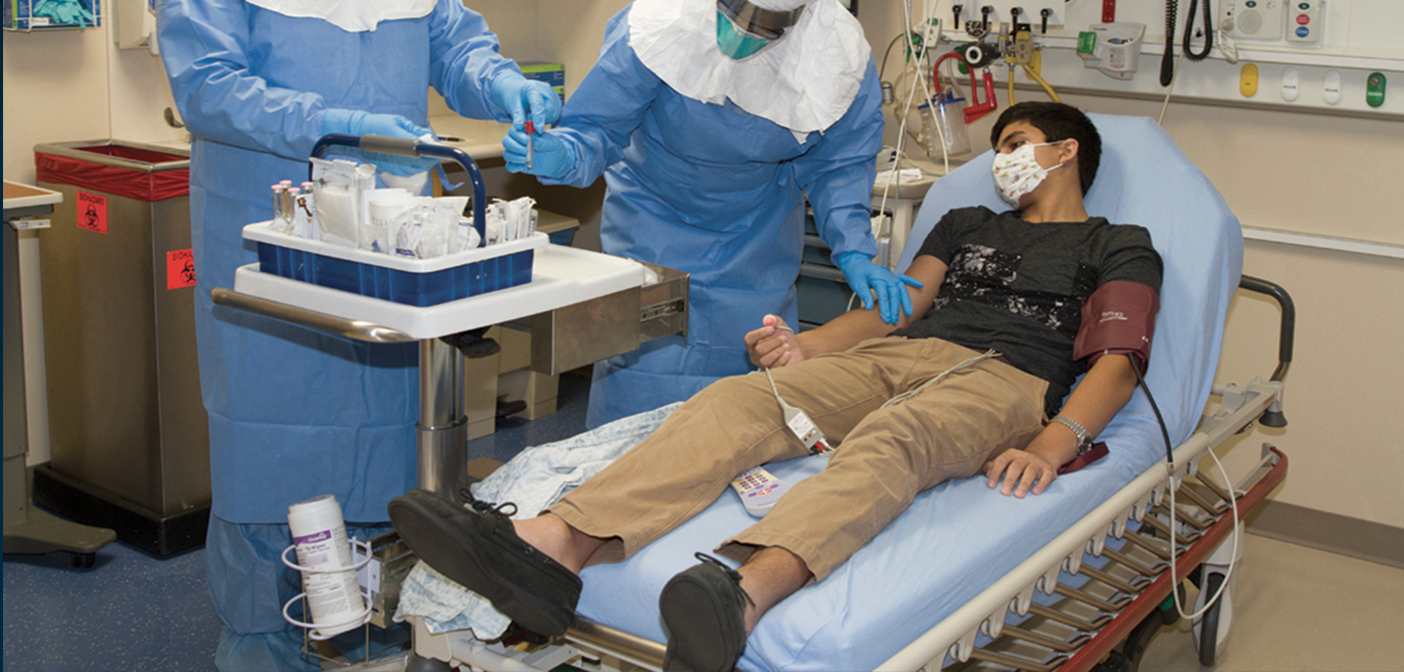Lessons of Ebola training help ACH nurses feel ready for whatever’s next
Ebola never crossed the threshold at All Children’s Hospital, an outcome the healthcare staffs are extremely thankful for. Here’s another: The lessons learned, about themselves and hospital preparedness, have left ACH and its nurses feeling competent, equipped, and confident in one another’s ability to react quickly to any such health scares in the future.And the teamwork forged during Ebola prep is now pretty much standard operating procedure.
“As a nurse leader, it’s my job to oversee the impact nursing has on evidence-based practice and the delivery of quality patient care, no matter the reason,” says Susan Byrd, RN, executive director of nursing and nursing support services at ACH. “Our efforts to improve Ebola preparedness have helped us grow and understand that we are capable of more than we imagined.”
Ebola preparations began in St. Petersburg, FL in August 2014 with a small team that quickly grew into a multidisciplinary Ebola Preparedness Task Force led by Chief Operating Officer Roberta Alessi, MHSA, and Chief Patient Safety Officer Brigitta Mueller, MD.“The task force included nurse leaders and nurses on the front lines in the emergency center, pediatric intensive care unit [PICU], and clinical education,” says Byrd.“Our efforts to improve Ebola preparedness have helped us grow and understand that we are capable of more than we imagined.”
— Susan Byrd, RNWorking with preparedness plans and drills specific to ACH, the Ebola care team–about 30 volunteers, mostly nurses–prepared and practiced to effectively care for both potential and confirmed Ebola cases. (Since its outbreak in late 2013 in West Africa, the virus has killed more than 8,500 people worldwide, sickening nearly 22,000 overall. Ebola patients were treated at U.S. hospitals in Texas, Georgia, Nebraska, New York, and Maryland.)
Disaster Coordinator Jesse Rauch; Emergency Center Nurse Manager Radek Hoffmann, RN, Emergency Center Director Michelle Moran, RN, and PICU Director Melissa Macogay, RN, shared expertise, experience, and time in creating Ebola preparedness drills, expectations, and accountability, all while ensuring that volunteers were comfortable with their roles.
Clinical Education’s Lisa Matamoros, RN, created practical drills allowing team members to put their knowledge and skills to use in simulation labs while in full isolation equipment, the personal protective equipment that prevents skin contact with the deadly Ebola virus or other potentially hazardous agents.
“The lessons learned from those drills have transcended beyond the lab doors,” Byrd explains. “I feel strongly that this worldwide crisis was a benefit for the U.S. healthcare system and for us, personally, because it challenged us to test our processes, to work far beyond our comfort zones, and to showcase the operational aspects that nursing does extremely well.”
And at ACH, the anti-Ebola efforts “demonstrated how cohesive teamwork produces life-saving results,” Byrd says.

